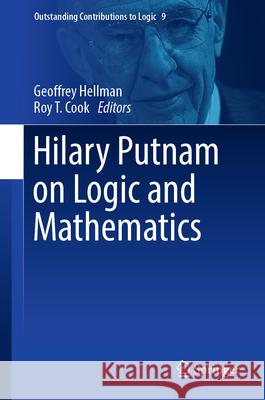Hilary Putnam on Logic and Mathematics » książka
topmenu
Hilary Putnam on Logic and Mathematics
ISBN-13: 9783319962733 / Angielski / Twarda / 2018 / 274 str.
Kategorie:
Kategorie BISAC:
Wydawca:
Springer
Seria wydawnicza:
Język:
Angielski
ISBN-13:
9783319962733
Rok wydania:
2018
Wydanie:
2018
Ilość stron:
274
Waga:
0.57 kg
Wymiary:
23.39 x 15.6 x 1.75
Oprawa:
Twarda
Wolumenów:
01
Dodatkowe informacje:
Bibliografia
Wydanie ilustrowane
Wydanie ilustrowane











